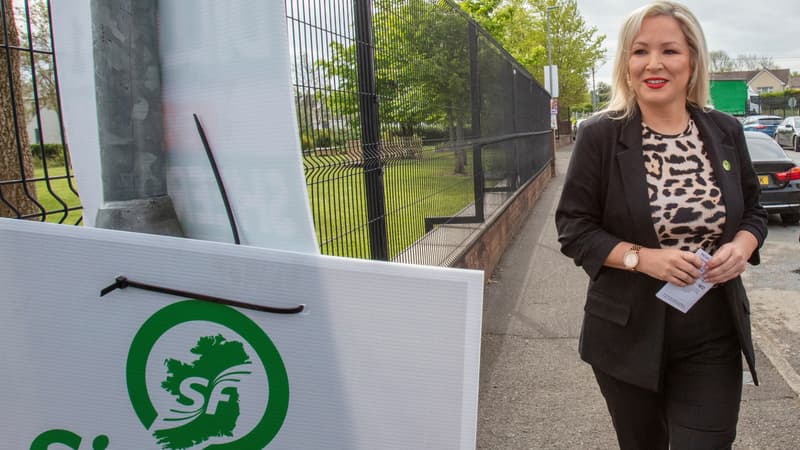The Irish republican party Sinn Fein stayed away from the ceremony in Northern Ireland, in which Charles was proclaimed king. Its leader judged that it was “intended for those whose political allegiance goes to the Crown”. After London on Saturday, Charles III was officially proclaimed king during ceremonies in Edinburgh, Cardiff and Belfast on Sunday morning.
Sinn Fein, supporters of the reunification of Northern Ireland with the Republic of Ireland, did not participate. But party officials will attend other events as part of mourning Queen Elizabeth II’s death, party chairwoman Mary Lou McDonald was quoted as saying by the PA agency. The party’s deputy chairwoman, Michelle O’Neill, is expected to take part in another ceremony at the House on Monday to mark the Queen’s passing.
“Sinn Fein offers … its condolences on the passing of Queen Elizabeth, whose loss is deeply felt by her family and by many in our society, particularly within the Unionist community,” said Mary Lou McDonald.
“We recognize the very positive role that the Queen has played in advancing peace and reconciliation between our two islands and the two traditions of our island during the years of the peace process,” he added.
Queen Elizabeth II is the only Queen to have visited the Republic of Ireland
The 70-year reign of Elizabeth II, who died this Thursday at the age of 96, was marked by three decades of “Problems” in the British province between republicans, especially Catholics, eager for reunification with Ireland, and unionists, mostly Protestants. , attached to the support within the crown.
IRA paramilitaries killed Louis Mountbatten, the queen’s cousin and mentor to future King Charles III, in a 1979 bomb attack and Sinn Fein, the movement’s former political wing, apologized last year for the killing. This conflict, with the participation of the British army, left some 3,500 dead until the Good Friday Agreement of 1998. Relations remain tense today, which is why some Irish have rejoiced at the death of the queen this Thursday.
Sinn Fein won elections in Northern Ireland at the beginning of May, according to which Michelle O’Neill should become first minister of the local government, shared with the unionists. The latter, however, refuse to form an executive due to the province’s specific post-Brexit controls.
In 2011, the Queen became the first British monarch to visit the Republic of Ireland, a historic visit seen as a grand gesture towards reconciliation.
Source: BFM TV


